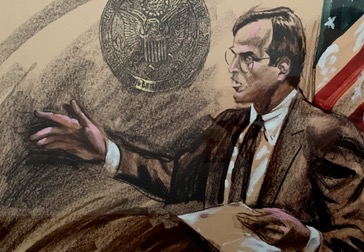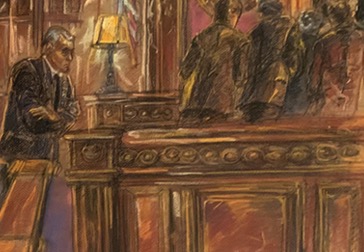Should You Ever Take a Proffer Deal?

In certain situations, police and prosecutors may need information or even testimony from an accused offender. If that individual wishes to share what they know about a crime, they may be able to reduce their punishment by obtaining a better plea deal. However, these types of deals are not always a good idea and can back-fire if not handled by a skilled federal defense attorney. At the office of Bruce L. Udolf, P.A., our office works closely with clients to ensure any deal is carefully negotiated so that you are protected. Here are a handful of considerations when looking at whether to share information as part of your plea negotiations.
What is a Proffer?
A proffer in the context of a negotiation is when the government seeks specific information that may be difficult to obtain without someone with inside or first-hand knowledge. Authorities may offer special treatment, reduced charges, or even outright dismissal in exchange for cooperation and helpful information. The more helpful the information, the more likely charges will be dropped. But this is a dangerous game to play, because in most situations the government will not agree to any particular plea deal until they know exactly what a defendant has to say. And naturally, the defendant is unlikely to want to share information without some assurance of a deal. Enter the proffer letter.
What is a Proffer Letter?
A proffer letter, though not technically a requirement of cooperation, is a way for a prosecutor to let a defense attorney and his or her client know the nature of what is sought and to provide some assurance that beneficial information will be rewarded. Though technically a prosecutor could withdraw an offer if the information is not good, most prosecutors know that in order to ensure defendants and attorneys will work with them in the future, they must honor proffer deals. The letter is an attempt to bridge the divide and provide terms and conditions to the agreement.
How Much Does the Government Require Your Help?
Like in all negotiations, it is all about leverage. If you are one of dozens of people to possess certain knowledge, such as where evidence may be or the name of a key witness, then you probably do not have much leverage. As soon as the government locates any one of those other people, they are likely to get the information and not need your help. Thus, any offer they make may be tenuous and pulled away if you don’t accept quickly. However, if you are the only person to know certain information that the government may need in order to prosecute a more serious crime, then you indeed have leverage. Knowing how to apply it is key.
The U.S. Attorney must make difficult decisions about when to take cases to trial and whether there is ample evidence to use government resources to further pursue criminal matters. A proffer is one way of getting an early plea deal done. The government even has specific considerations for negotiating plea deals. These can be handy to study and understand when entering into agreements in criminal cases. But ultimately, nothing can prepare you and ensure the best deal possible like an experienced Fort Lauderdale federal crime attorney. If you have been charged with a serious federal crime, and the government would like you to share information about a criminal matter, talk to Bruce L. Udolf, P.A. first.
Resource:
justice.gov/jm/jm-9-27000-principles-federal-prosecution
https://www.bruceudolf.com/the-5-most-common-federal-crimes-for-everyday-citizens/








